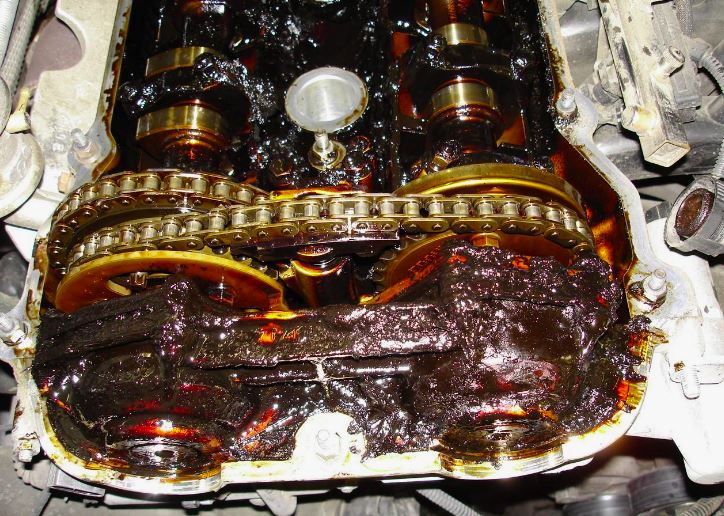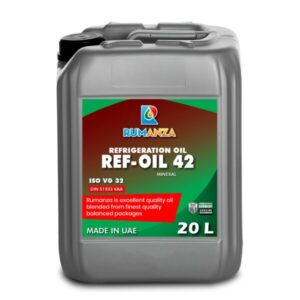Anti-Wear Additives in Engine Oil: Protecting Engine
Engine oil is the lifeblood of your vehicle, playing a crucial role in reducing friction, cooling engine components, and preventing wear and tear. One of the key elements that contribute to the effectiveness of engine oil is the presence of anti-wear additives. These chemical compounds are specifically designed to protect engine parts from excessive wear, ensuring the longevity and performance of your vehicle. Here, we’ll delve into the world of anti-wear additives in engine oil, exploring their types, benefits, and how they work to safeguard your engine.
What Are Anti-Wear Additives?
Anti-wear additives are chemical compounds added to engine oil to reduce friction and wear between metal surfaces in an engine. As the name suggests, these additives form a protective layer on metal components, preventing direct metal-to-metal contact that can lead to wear, overheating, and ultimately, engine damage. They are especially important in modern engines, which operate at higher temperatures and pressures than older models.
How Do Anti-Wear Additives Work?
Anti-wear additives work by creating a thin, protective film on the surface of engine components. This film reduces friction and prevents metal surfaces from coming into direct contact with each other. When the engine is running, the pressure and heat generated cause the additives to react chemically, forming a protective barrier that withstands high loads and temperatures.
One of the most common anti-wear additives is zinc dialkyldithiophosphate (ZDDP). ZDDP decomposes under heat and pressure, forming a protective phosphate glass layer on engine parts, which acts as a shield against wear.
Types of Anti-Wear Additives
There are several types of anti-wear additives used in engine oils, each with its unique properties and applications:
Zinc Dialkyldithiophosphate (ZDDP): As mentioned earlier, ZDDP is one of the most widely used anti-wear additives. It provides excellent protection against wear and oxidation, making it a staple in many engine oils.
Molybdenum Disulfide (MoS2): Known for its lubricating properties, MoS2 forms a solid film that reduces friction between moving parts. It is particularly effective in high-pressure environments.
Phosphorus-Based Additives: These additives are used to reduce wear in engine components by forming a protective layer that prevents metal-to-metal contact. They are often used in combination with ZDDP.
Boron-Based Additives: Boron-based compounds provide anti-wear protection and also help to reduce friction. They are known for their ability to form a durable, protective layer on metal surfaces.
Calcium Sulfonate: This additive not only offers anti-wear protection but also helps to neutralize acids formed during combustion, thus protecting engine parts from corrosion.
The Role of Anti-Wear Additives in Modern Engines

Modern engines are designed to deliver more power while being more fuel-efficient, which often means they operate at higher temperatures and pressures. This increase in engine stress makes anti-wear additives more critical than ever. Here’s how these additives play a vital role in modern engines:
High Temperature Protection: Anti-wear additives protect engine parts from the increased heat generated by modern engines, preventing breakdowns due to thermal stress.
High Pressure Tolerance: As engines operate at higher pressures, the risk of metal-to-metal contact increases. Anti-wear additives help mitigate this by forming a protective barrier between metal surfaces.
Fuel Efficiency: By reducing friction, anti-wear additives contribute to improved fuel efficiency. Less friction means the engine requires less energy to operate, which can translate to better gas mileage.
Extended Engine Life: Regular use of engine oil with anti-wear additives can significantly extend the life of your engine by reducing wear and tear on critical components.
Benefits of Using Engine Oil with Anti-Wear Additives
The use of engine oil containing anti-wear additives offers numerous benefits for your vehicle’s engine:
Reduced Engine Wear: The primary benefit is the reduction in wear on engine components, which helps maintain engine performance and prevent costly repairs.
Enhanced Engine Protection: Anti-wear additives provide an additional layer of protection against the harsh conditions inside the engine, such as high temperatures and pressures.
Improved Fuel Economy: By minimizing friction between moving parts, these additives can contribute to better fuel economy, saving you money at the pump.
Lower Maintenance Costs: With reduced wear on engine components, the need for repairs and replacements is minimized, leading to lower maintenance costs over the life of the vehicle.
Prolonged Oil Life: Anti-wear additives can also help extend the life of the engine oil itself by reducing the rate at which the oil degrades, meaning you can go longer between oil changes.
How to Choose the Right Engine Oil with Anti-Wear Additives
Choosing the right engine oil with anti-wear additives involves considering several factors:
Vehicle Manufacturer Recommendations: Always refer to your vehicle’s owner manual to see the recommended type of engine oil. Using oil with the appropriate anti-wear additives can ensure optimal engine performance.
Driving Conditions: If you frequently drive in extreme conditions, such as towing heavy loads or driving in very hot or cold environments, you may benefit from an engine oil with enhanced anti-wear protection.
Engine Type: Different engines may require different types of anti-wear additives. For example, high-performance or turbocharged engines may benefit from specific additives that provide extra protection under high stress.
Oil Grade: The viscosity of the engine oil also plays a role in how well it can protect your engine. Ensure the oil grade you choose is appropriate for your vehicle’s engine and the climate in which you drive.
Environmental Impact of Anti-Wear Additives
The environmental impact of anti-wear additives is an important consideration in today’s world. Here’s how they affect the environment:
Reduction in Engine Wear: By reducing engine wear, anti-wear additives help engines run more efficiently, which can result in lower emissions.
Extended Oil Life: Anti-wear additives can extend the life of engine oil, reducing the frequency of oil changes and the amount of waste oil generated.
Biodegradability: Some modern anti-wear additives are designed to be more environmentally friendly, breaking down more easily and reducing their impact on the environment.
The Future of Anti-Wear Additives
As engine technology continues to evolve, so too will the technology behind anti-wear additives. The future of these additives lies in developing formulations that offer even greater protection while being more environmentally friendly. Advances in nanotechnology, for example, are leading to the creation of ultra-thin protective films that can provide superior wear protection without the need for large quantities of additive.
Additionally, as electric vehicles (EVs) become more prevalent, the role of anti-wear additives may shift. While EVs do not have traditional internal combustion engines, they still have components that require lubrication and protection from wear, such as the electric motor and transmission.
Conclusion: Are Anti-Wear Additives Essential?
In conclusion, anti-wear additives in engine oil are essential for protecting your engine from the wear and tear of everyday driving. Whether you drive a high-performance sports car or a family sedan, using engine oil with the right anti-wear additives can help extend the life of your engine, improve fuel efficiency, and reduce maintenance costs. As engine technology continues to advance, the importance of these additives will only grow, making them a crucial component in maintaining the health and performance of your vehicle.
When choosing an engine oil, be sure to consider the type of anti-wear additives it contains and how they align with your vehicle’s needs. With the right oil and additives, you can drive with confidence, knowing your engine is protected against the rigors of the road.
FAQs

Essential Guide: Choosing the Right 2-Stroke Universal Oil
Essential Guide: Choosing the Right 2-Stroke Universal Oil for Your Vehicle Discover More When it comes to maintaining the longevity and performance of your two-stroke engine, choosing the right universal oil is crucial. Whether you own a motorcycle, chainsaw, lawnmower, or any other two-stroke engine vehicle, using the correct oil can make a significant difference. This comprehensive guide will walk you through everything you need to know about selecting the right 2-stroke universal oil for your vehicle. What is 2-Stroke

Railroad Engine Oil: Types, Benefits, and Maintenance Tips
Railroad Engine Oil: Types, Benefits, and Maintenance Tips Discover More Introduction to Railroad Engine Oil Railroad engines are powerful machines designed to handle large amounts of load over long distances. To maintain their performance, it is essential to use the right engine oil. Railroad engine oil not only lubricates but also prevents corrosion and reduces wear and tear on the engine parts. This article provides a detailed look at the types of railroad engine oil, their benefits, and key maintenance

Antiwear Additives: Types, Mechanisms, Role and Applications
Antiwear Additives: Types, Mechanisms, Role and App Discover More In industrial machinery and automotive applications, wear and friction are unavoidable but damaging effects on metal parts. Over time, they lead to reduced efficiency, increased maintenance costs, and eventually the failure of critical components. Antiwear additives are chemical compounds that play a crucial role in mitigating these effects. By forming protective layers on metal surfaces, they reduce the rate of wear and extend the lifespan of machinery. In this article, we’ll

Furnace Fuel Oil: A Comprehensive Guide to Efficient Heating
Furnace Fuel Oil: A Comprehensive Guide to Efficient Heating Discover More Introduction to Furnace Fuel Oil and Its Role in Heating As the cold months approach, many households are concerned about ensuring a reliable, efficient heating source. Furnace fuel oil, commonly known as heating oil, provides a dependable solution for keeping homes warm and cozy. Known for its ability to produce intense heat quickly, fuel oil remains a popular choice in regions with particularly cold winters, where reliable heat is

Rumanza Oil and Gas: Pioneering Energy Solutions in the UAE
Rumanza oil and gas industry: Pioneering Energy Solutions in the UAE Discover More Meeting Energy Demand with Innovation and Sustainability In the heart of the global oil and gas sector lies the United Arab Emirates (UAE), a country renowned for its extensive energy resources, commitment to innovation, and vision for a sustainable future. Within this landscape, Rumanza Oil and Gas has emerged as a company dedicated to transforming the traditional energy sector with modern technology and sustainable practices. Driven by

How to Choose the Best Engine Oil for Your Car
How to Choose the Best Engine Oil for Your Car Discover More Choosing the right engine oil for your vehicle is critical for optimal performance, engine longevity, and fuel efficiency. The process might seem overwhelming with various brands, types, and grades on the market, especially as the automotive engine oil market grows with specialized options. Understanding key factors like engine type, oil grade, and manufacturer recommendations will help you make an informed decision. Here’s a guide to selecting the best

Refrigeration Oils Explained: Choosing the Best for Your System
Refrigeration Oils Explained: Choosing the Best for Your System Discover More Refrigeration oils play a crucial role in maintaining the performance and longevity of refrigeration and air conditioning systems. Understanding their properties and selecting the right type for your specific system is essential for smooth operation. This guide delves into the types, properties, and selection criteria for refrigeration oils, giving you insights into choosing the ideal oil to protect and enhance your refrigeration system’s efficiency. Understanding Refrigeration Oils Refrigeration oils,






